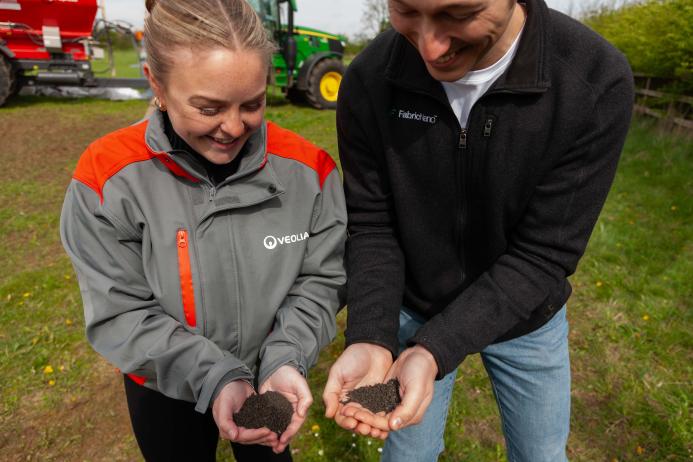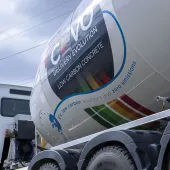Seeking the holy grail of rock weathering for carbon sequestration
Veolia using enzymes in world-first trial to remove carbon dioxide with enhanced rock weathering
VEOLIA, the UK’s leading resource-management company, have partnered with UK biotechnology start-up FabricNano to apply enzymes to rocks to trial faster, permanent carbon dioxide (CO2) removal directly from the atmosphere.
This decarbonization innovation is part of a wider strategy from Veolia Group to ‘GreenUp’ across the globe. Already a leading player in the research and development of environmental solutions, with 14 research centres worldwide, the Group announced that it would significantly accelerate its investments in innovation with an additional €200 million to design the technologies of the future.
Enhanced rock weathering (ERW) is a process that helps to address climate change by removing carbon dioxide from the atmosphere and permanently storing it in rocks. Veolia’s new ERW service utilizes large-particle basalt rock fines sourced from local quarrying operations.
Once spread on land, these rocks react with the carbon dioxide from rainwater to permanently store CO2. One tonne of basalt rock fines can remove up to 300kg of carbon dioxide, however this process can take more than 30 years.
FabricNano’s patented technology immobilizes the carbonic anhydrase enzyme directly on to large-particle basalt, accelerating carbon sequestration timelines from decades to just a couple of years. And with net-zero targets fast approaching, FabricNano say this innovation could make a huge difference to global decarbonization efforts in the next decade.
This year, Veolia will spread 30,000 tonnes of basalt rock across farmland throughout the UK as they begin their ERW decarbonization operations. The landmark trial with FabricNano will see protein powder, containing the carbonic anhydrase enzyme, combined with silicate rock being spread on a stretch of farmland near Bicester, run by Oxford Agricultural Trials (OATs).
The trial uses locally sourced, larger rock particles that are a plentiful resource of nearby quarrying operations. Applying enzymes to speed up the natural rock weathering processes, this trial will incur less than 100 miles of rock transport to the farmland and consume no energy to grind up rocks. The aim is to prove the methodology for an efficient, scalable method to capture huge volumes of atmospheric CO2.
With 17 million hectares of utilized agricultural area and more than 2 billion tonnes of basalt rock reserves in Great Britain, ERW is said to present real potential to help countries decarbonize, if it can be scaled up with economic viability. According to research by the University of Sheffield, ERW could deliver 6 to 40 million tonnes of carbon dioxide removal a year in the UK.
Marine Avisse, head of corporate development at Veolia UK, said: ‘Widescale adoption of viable, permanent, and effective decarbonization solutions is essential if we are to achieve net-zero targets, but we need to deploy these faster.
‘This innovation, combining world-leading biotechnology and established carbon-removal practices, represents a huge step forward in ecological solutions. Not only will this trial see enzymes accelerate the rate of enhanced weathering, but it will also provide us with the data we need to replicate this across more applications so industries can tangibly meet their fast-approaching decarbonization goals.’
Grant Aarons, chief executive officer and founder of FabricNano, said: ‘Enhanced rock weathering with enzymes is a globally viable option for reaching net zero by 2050. Learning from nature, we repurpose the enzyme carbonic anhydrase, which naturally acts to lock carbon within the ground and which is found in plentiful supply in agricultural soils around the world. FabricNano apply an extra layer of this enzyme to the top-dressing of cropland where it helps to drive even more storage of carbon by weathering basalt rock fines.
‘The holy grail of rock weathering is utilizing large-particle rock (>0.5mm) that’s applied to the top-dressing of cropland. We believe that biology, namely the immobilized enzyme carbonic anhydrase, has a role to play in enabling this breakthrough process which would allow instant global scalability of rock weathering for carbon sequestration.’










